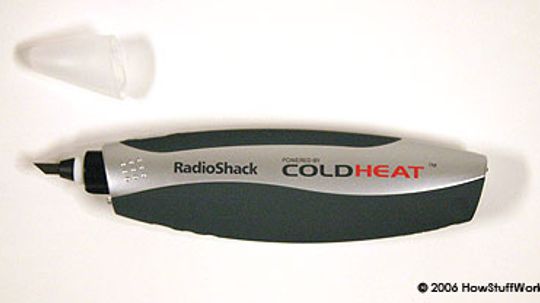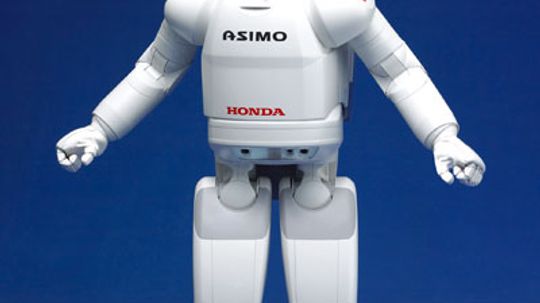Engineering
Engineering is the discipline of design and construction of mechanical devices, equipment, structures and public works systems. Topics include aircraft technologies, buildings, bridges, robotics and heavy machinery.

The World's Most Awe-inspiring Glass Buildings

10 Innovative Architects to Watch

16 World-Famous Architects and Their Impact

Who Builds Data Centers? Where? Why? We Have So Many Questions

The Steepest Road in the World, Plus 9 Rival Inclines

Here's Longest Bridge in the U.S., Plus 7 Runners-Up

10 Types of Swords for All Sorts of Circumstances

A Horrifying Russian Lathe Accident Highlights Vital Safety Protocols

How Zambonis Work

What's the Hardest Wood in the World?

10 Types of Metal (and We Don't Mean the Music)

Are food-based plastics a good idea?

Your Thoughts Could Activate a Tiny Robot Inside Your Own Brain

How Star Wars Works: Fan-built Droids

Robot Pictures

What's the Scariest Roller Coaster in the World? 10 Contenders

The Tallest Roller Coaster in the World Stood for 19 Years

Tallest Building in the U.S. and 13 Other Stunning Skyscrapers
Learn More / Page 4
It may seem like a strange idea, but one British researcher believes that by 2050, robots and humans will be able to marry legally in the United States. What social implications might this strange-sounding phenomenon have?
By Josh Clark
Welcome to the wonderful and weird world of nanowires. Scientists can adapt this incredibly thin material for a number of uses, whether as a fiber-optic nanowire or to build increasingly smaller microprocessors. They're even used in medical implants.
Michelangelo was not only a great sculptor; he was also a master builder. He loved cities over nature and although had many architectural feats under his name, he often declared that he was not an architect. See the famous buildings of Michelangelo.
Advertisement
Plastics can be shaped or molded into any form, and they're everywhere -- in your car, computer, toys and even bubble gum. But because they don't degrade, they cause big problems when it's time to throw them out.
The Hoover Dam holds back 10 trillion gallons of water. That's enough to cover the entire state of Connecticut. How much damage would be done if the dam broke?
If you wanted to build a Great Pyramid in today's market, you would need to take into consideration a lot of factors. How much labor would you need? What about materials? And how much would it cost you?
Domed cities would provide the same temperature year-round, no rain or snow, and the ability to go outside without worrying about a sunburn. Have they been tried before, and what about the people who enjoy their seasons?
Advertisement
Bots with a badge? Police robots are no longer the stuff of sci-fi movies like "RoboCop." Some cities are using robots to patrol beats, although they're more commonly used in dangerous scenarios.
Whether they make you think of Hurricane Katrina or Led Zeppelin, levees are a critical safety feature for low-lying areas located near water. Why do they break?
Rail guns leave gunpowder-based weapons in the dust (one can hit a target 250 miles away in six minutes). So why isn't the military using them? Find out how rail guns can be used and learn about the limitations of this technology.
With the help of Q, James Bond can breeze through a security system that requires the villain's irises, voice and handprint. Biometrics isn't just for the movies. Real-life businesses and governments are using it. Check it out.
Advertisement
As an invention, Cold Heat seems to have everything. But reviewers -- both professionals and average users -- either love the tool or hate it, and some people question whether it's really "new" at all.
A female Android designed to look like a 20-something Korean woman is capable of making facial expressions and holding a simple conversation.
The Rehabilitation Institute of Chicago introduced a new bionic arm that can be controlled by reading a person's thoughts. How does this technology work? Can you control a machine with thoughts? Learn about the bionic arm in this article.
By Julia Layton
The crossbow, a weapon popular with Wookiees, vampire slayers and some modern hunters, looks like a cross between a bow and a rifle. Read about it's fascinating history and uses.
Advertisement
When pyramids come to mind, most of us think of Egypt, but pyramids exist in many parts of the world. How were they constructed without earth-moving or heavy-lift machinery? And most of all, why were these amazing structures built?
It walks, it talks and it works as a receptionist. Honda engineers have been busy creating the ASIMO robot for more than 20 years, and it shows.
London without the Tube? New York without its underground scene? Atlantans gliding straight from their MARTA stops to the airport? What would life be like without our underground transportation system?
The centuries-old art of sword making involves incredibly intricate metal work, and it's still being practiced today. Get a rare glimpse into the creation of this ancient weaponry.
By Jeff Tyson
Advertisement
When it came to building or improving things, the ancient Romans really knew their stuff. Which cool engineering tricks did they pass along to us?
Ever heard of a little unit called a femtometer? Can you tell us how much you weigh -- in petagrams? We know you can't, so hurry up and start reading. We have work to do.
So you like to complain about your demonic boss, moronic co-workers and fancy company coffee machine that never, ever works? You need to zip it and meet these 10 hard-working bots. They could tell you stories.
By Robert Lamb
Pisa without its precariously tilted landmark is like San Francisco without the Golden Gate or London without Buckingham Palace. Will the peculiarly enduring tower ever vanish from the Italian skyline?
Advertisement
Robots continue to work their way into every aspect of our lives, but these advancements aren't self-sustaining. The fields of robotics, engineering and science depend on a steady pipeline of young minds. And that's where FIRST comes in.
Dyneema is trademarked as the world's strongest fiber. Find out how this high-strength synthetic is capable of protecting an individual (or an entire vehicle) from IEDs or even shots fired from an AK47.
























